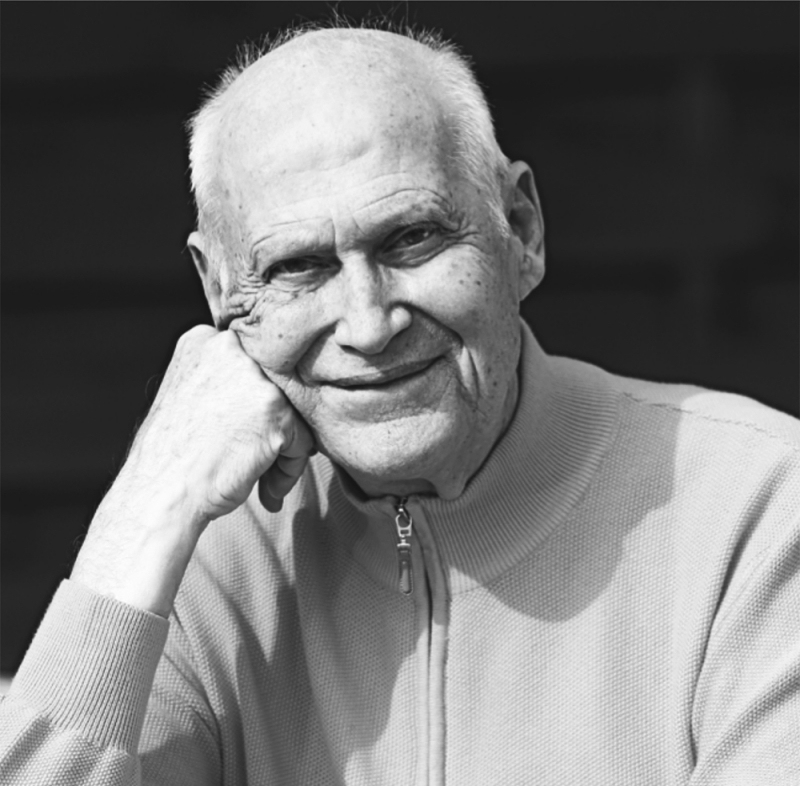I’LL HURT YOU BACK A LITTLE LESS
We learned the sad news of the death of Bert Hellinger, the creator of Family Constellations, on September 19th, 2019. While Kelly and I never got the opportunity to study directly with Bert, we will always be grateful to our teachers, Peter and Jamy Faust, for integrating what they learned from him and passing it on in their program they named The Constellation Approach. Peter and Jamy studied directly with Bert for several years in the first cohort of students in the U.S,. and they have trained many facilitators in the ways to heal through the family lineage, working with the numinous energies of the family soul.
Through Family Constellations, Bert brought great wisdom gained through his observations working with thousands of individuals and families. He also embodied his life’s many profound experiences, growing up the son of Catholic, resistant parents in Nazi Germany; being conscripted into the German army at age 17 and fighting in the war; his capture and subsequent year in a POW camp in Belgium, where he likely witnessed if not suffered abuse enacted by his Allied captors before escaping; entering Catholic seminary in Germany after the war and becoming a priest; being assigned to Kwazulu Natal in rural South Africa where he spent almost 15 years as a priest, teacher and head of school among the Zulu people; leaving the priesthood to study psychology in Austria, as well as many alternative healing methods all over the world; and synthesizing all his learning into what came to be known as Family Constellations, and traveling all over the world to teach and help bring healing to thousands of people.
Among the dozens of principles Bert Hellinger discovered that supports a flow of love in a family, one that remains primary for me is this observation: when a person or group is wronged, there is a danger that the natural response to the injury will be a turning of the tables wherein the victim, or victims, turn into perpetrators of wrongs against the former perpetrators and the former perpetrators become victims. For healing to have a chance, it’s essential that this reactive attack be tempered. This applies whether it occurs between unrelated individuals, siblings, spouses or lovers, small or large groups, militaries, religions, or nations. Further, if the injury remains unaddressed, it can remain in the family or group system and be carried unconsciously by members of later generations, influencing everyone involved, descendants of victim and perpetrator alike.
At the level of nations, we can consider that after Germany’s surrender in World War II there were millions of German POWs who died in inhuman conditions in camps in the Soviet Union, France and Germany, and that France took many disarmed German soldiers as slave labor. It should be no surprise that Hellinger worked extensively in Germany in his early years as a therapist helping Jewish and German people come to peace with the experiences of their parents’ generation after the war. It’s painful but important to acknowledge incidents from our own nation, including what happened at the Abu Ghraib prison in Iraq as well as the torture committed under official cover of the U.S. government in secret ‘black site’ prisons as part of the response to the attacks of 9/11.
Hellinger made the observation that, in a marriage, when a partner hurts their beloved, it’s best for the wronged partner to hurt the other back, but a little less. If one doesn’t respond, one is denying the truth of their pain. But if they lash out and cause more pain, the cycle of wounding escalates, the victim becomes a perpetrator, and the bond of love will be imperiled. For the sake of a greater love and peace that can instruct the family and larger community, the wronged party needs to have a strength and understanding that resists the negative pleasure of payback.
In a very different arena, I find similarities to Hellinger’s philosophy regarding responses to injuries In the anti-racism work of Coming To The Table. Included in CTTT values are the Christian principles embodied by Martin Luther King Jr. and his life’s work, teaching African-Americans who were oppressed by the hatred of whites and the history of racial terror lynchings to practice loving their enemies, not just in the abstract, but as a feeling in the heart. As civil rights leader Bernard LaFayette Jr. wrote, “You can disarm someone to a certain extent with a nonviolent response, because it is unexpected behavior… While the motive on the part of those who perpetrated violence was to discourage us, our response to the violence was the opposite. These assassinations and attacks awakened people and shook them into realizing new meaning to life. I believe the value of life lies not in longevity but in what people do to give significance. Rather than focus on the length of our physical lives, we turned internally and determined the measure of our lives in terms of what could be done to serve others that could give our lives deeper meaning. This is how life is expanded- it's not just your space in time but your experiences in the minds of others that give it longevity and importance. [From In Peace and Freedom: My journey in Selma, University Press of Kentucky 2013]
This response is full of strength and character, given that Mr. Lafayette was arrested, beaten, faced the barrel of a gun, and had friends and colleagues in the movement killed- all numerous times- by people who were committed to doing him harm. I can’t fathom finding that courage in myself, given that I’ve never lived under those stresses, and I try to remember the teachings of Gandhi, King, LaFayette, and Bert Hellinger in my approach to healing work.
